Xi Pivots To Moscow
Will Xi’s late March 2013 trip to Vladimir Putin’s Russia -- a bastion of authoritarian state capitalism -- symbolically define China’s path ahead, like Deng’s 1979 U.S. tour?
Will Xi’s late March 2013 trip to Vladimir Putin’s Russia -- a bastion of authoritarian state capitalism -- symbolically define China’s path ahead, like Deng’s 1979 U.S. tour?
Li Yuanchao is elected vice-president of the People’s Republic of China at the fourth plenary meeting of the first session of the 12th National People’s Congress (NPC) in Beijing, capital of China, March 14, 2013.
...
“I think that [Xi] is attracted to the idea of a kind of enlightened dictatorship, or neo-authoritarianism,” says magazine editor Li Weidong. “He rejects fundamental political reform, but he wants a cleaner, more efficient government that...

Dorinda Elliott:
China’s recent decision to phase out the agency that oversees the one-child policy has raised questions...
The move to make his wife more visible underscores the sense that Xi is treading a different path from his predecessor. Breaking with Chinese tradition signals his recognition that China must find new ways to make friends.
...
For the foreseeable future, accepting pluralism, in all its colours and guises, is simply inconceivable in the epistemology of the Communist Party, and so are liberal conceptions of free expression and democracy.
The Chinese government’s views on transparency, in regards to issues of interational health, have changed drastically since the S.A.R.S. outbreak ten years ago, but some areas have yet to improve.
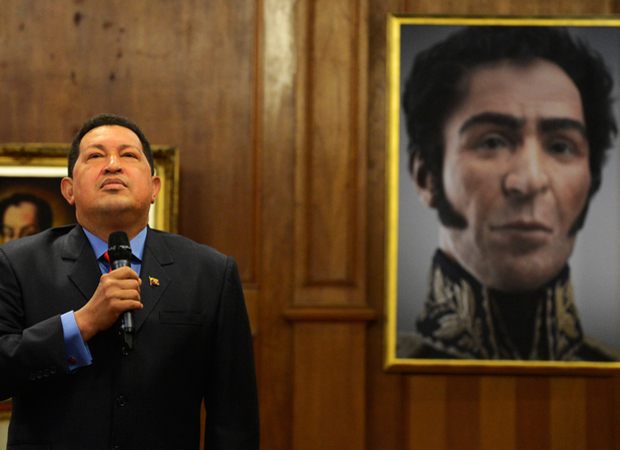
Venezuelan president Hugo Chavez’s death on March 5, 2013 came in the same week as the “Two Sessions” began in China, when China’s national legislature meets in Beijing. It was also almost exactly a year since the spectacular political demise of...
The Health Ministry will merge with the National Population and Family Planning Commission, while other ministries and agencies, like the Chinese F.D.A., are being restructured or given more power.
Personnel changes for State Councilor, Foreign Minister-designate, and ambassador to the U.S. suggest that China wants to improve the optics of its relationship with the United States, if not the substance.

Finally, it seems the railways ministry may soon be restructured as part of a wider exercise by the government to streamline its ministries. Putting railway reform on the agenda of this year’s meetings of the National People’s Congress and the...
As China's economic and defense tactics appear to become more and more successful, David Brooks expects other countries' policies will start to resemble them, whether or not they run counter to our principles.
Photos of the various ethnic minorities represented at the 2013 National People's Congress, showcasing the government’s inclusiveness and the country’s diversity.
The growing presence of wealthy people in the legislature coincides with Xi's efforts to address the concern that the Communist Party no longer represents the interests of ordinary Chinese.
Familiarity with citizen voices abroad, and the ability to leverage grassroots sentiment to amplify diplomatic impact, is a vital prerequisite for Washington’s unique brand of engagement.
The United States and China introduced a resolution that would tighten inspections of suspect ship and air cargo and subject the country’s diplomats to invasive scrutiny and increased risk of expulsion.
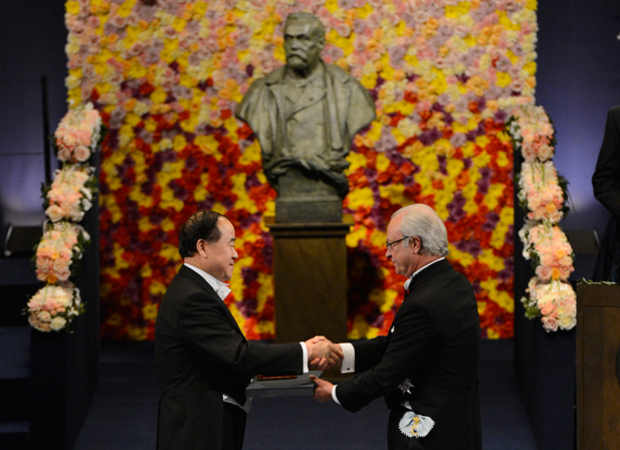
When Chinese author Mo Yan won the Nobel Prize for literature last year, many critics were fast to pounce on his selection,...
An English version of Wen Jiabao's speech, delivered at the First Session of the Twelfth National People’s Congress on March 5, 2013.
The blind lawyer and human rights activists answers questions regarding China's constitution, rule of law in China, and the inevitability of change in the Chinese government.
The intentional secrecy surrounding details about the annual plenary sessions might explain why it is so tough for media to resist chasing celebrities like Yao Ming and Jackie Chan.
Operating out of two rooms in a dilapidated pharmaceutical factory, and with a staff of four, the Voice of the People is a muckraking freesheet challenging the local propaganda paper.
Since taking the top party post, Mr. Xi has made a closer relationship with the military with greater speed and sureness than his recent predecessors.
Yao Lu’s deceiving photos are a commentary on the state of China, its modernization, and its rampant pollution.
The Chinese missiles were part of a larger shipment interdicted by American and Yemeni forces in January 2013, allegedly intended for Houthi rebels in northwestern Yemen.
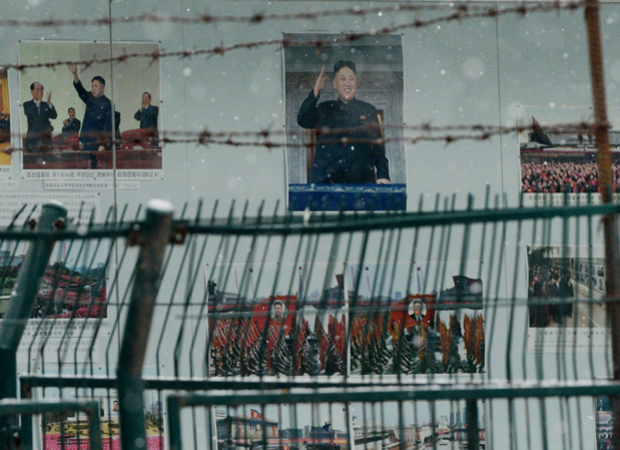
Orville Schell:
What may end up being most significant about the new draft resolution in the U.N...
Imagine a luxury goods shopper so confident and flush with cash that one day he walks into a Shanghai handbag shop, flashes 300,000 yuan, and waltzes out with almost every bag in stock.
That’s what happened last year at a Prada store where...
James R. Holmes looks at the applicability of a Cold War analogy in regards to U.S.-China and China-Taiwan relations.
At Secretary of State Kerry's confirmation hearing he stressed more on coordination rather than confrontation in foreign relations, especially when it came to China.
European Aeronautic Defense and Space Company’s (EADS) firewalls have been exposed to attacks by hackers for years, but now company officials say there was “a more conspicuous” attack a few months ago.
One of the main puzzles of modern population and social history is why, among all countries confronting rapid population growth in the second half of the twentieth century, China chose to adopt an extreme measure of birth control known as the one...

Daniel Rosen:
There have not been many new topics in U.S.-China economic relations over the past decade: the trade balance, offshoring of jobs, Chinese holding of U.S. government debt, whether China’s currency is undervalued and...
As Xi Jinping takes office as president of China, the citizenry he governs is more sophisticated and interconnected than any before, largely because of the Internet. A complex digital censorship system—combined with a more traditional approach to...
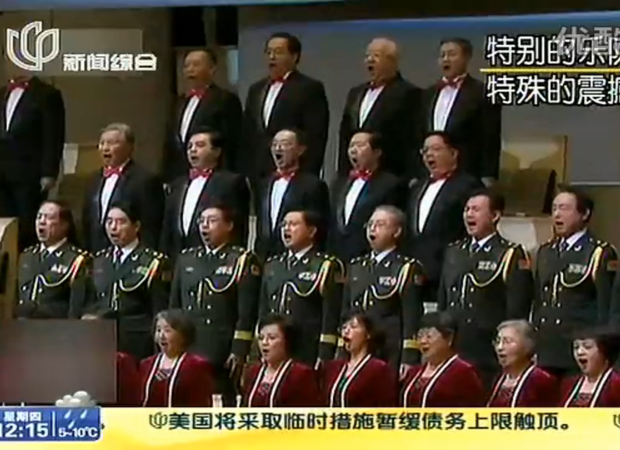
On a frigid Friday morning at the end of 2012, a stream of expectant concertgoers poured through the cavernous lobby of the China National Center for the Performing Arts. They had come to...

Elizabeth Economy:
The environment is center stage once again in China. A Chinese lawyer has requested the findings of a national survey on soil pollution from the Ministry of Environmental Protection and been denied on the...
For Xinhua to quote Ang Lee thanking Taiwan would be to unacceptably recognize the de facto reality that Taiwan is a separate state, so his thanks didn’t make it into China, at least not via the official media.
A look at what Xi has done so far and what is on the horizon, including environmental and economic reforms. loosening media restrictions, and Xi’s formally replacing Hu Jintao as president.
Beijing recently decided to take a more populist approach to its austerity campaign by making it a theme of the entertainment on CCTV’s widely watched Lunar New Year’s Eve gala.
Well-known U.S. newspapers including the Wall Street Journal and the Washington Post have raised the eyebrows of many Chinese recently in their two questionable reports on sensitive China-related topics.
Chinese hackers believe the most pervasive of of all Washington legends: that everything that happens in D.C. fits into somebody’s plan. Because in China, it would be like that. Not in our nation’s capital.
The meeting is the first between Xi and a leading Taiwanese politician since Xi assumed the party leadership and was viewed on both sides as a symbolic gesture aimed at reaffirming warming ties between the two nations.
The early 2013 cyberattacks and the U.S. government’s response illustrate how different the cyber-cold war between the U.S. and China is from the more familiar superpower conflicts of past decades.

A month after the conclusion of the Chinese Communist Party’s (CCP) 18th National Congress, the new Secretary General of the CCP and Central Military Commission, comrade Xi Jinping, left Beijing to visit Shenzhen, the first foothold of...

Former U.S. Secretary of Defense Harold Brown served during the hottest part of the Cold War when the Soviet Union presented an existential threat to America. In Star Spangled Security, Dr. Brown, one of the most respected wise men of American foreign policy, gives an insider’s view of U.S. national security strategy during the Carter administration, relates lessons learned, and bridges them to current challenges facing America.
Chinese hackers are getting dangerously good at tricking users into clicking on what are known as “phishing emails” -- messages with links or attachments that seem innocuous, but actually dump spyware on recipients' computers.
A timeline of cyberattacks from China from the Mandiant report.
While the story presented fresh evidence of Chinese hacking, the aftermath presents more questions than answers about U.S.-China relations, as well as the connection between U.S. media and Chinese government.
The accumulated evidence should retire the old notion that China’s most sophisticated hackers are just patriots freelancing from their parents’ basements.
Geng Yansheng, a spokesman for the Ministry of National Defense, says “The claim by the Mandiant company that the Chinese military engages in Internet espionage has no foundation in fact.”
The report does not reflect the facts and is not professional, and the PLA has never supported any cyber espionage activities, China's defense ministry said on its official website in response to the accusation.
Obama administration officials acknowledged that China’s involvement in cyber-attacks is a near-constant subject of conversation between the nations’ officials but that there have been few signs that China is willing to stop the attacks.
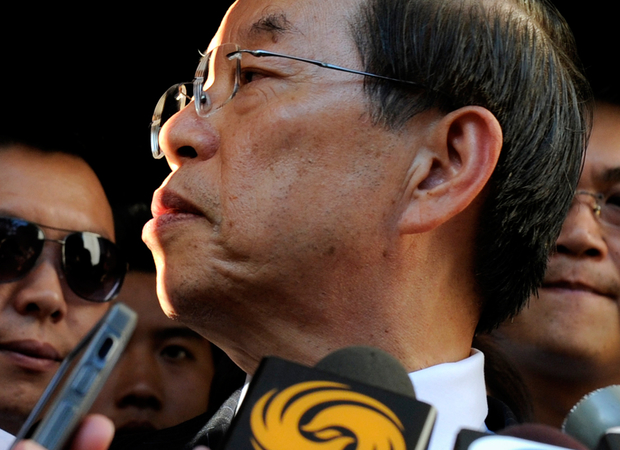
Within twenty-four hours of registration, Sina Weibo (China’s equivalent of Twitter) deleted the microblog account of Frank Hsieh, former premier of Taiwan’s pro-independence Democratic Progressive Party (DPP). Ironically, Hsieh’s last tweet...
An introduction to Mandiant, the details of its recent report on alleged government-affiliated Chinese hacking, why the report is significant, and potential backlash from the report.
An unusually detailed 60-page study tracks for the first time individual members of the most sophisticated Chinese hacking group to the doorstep of the military unit’s headquarters.
A secretive Chinese military unit is believed to be behind a series of hacking attacks, prompting a strong denial by China and accusations that it was in fact the victim of U.S. hacking.